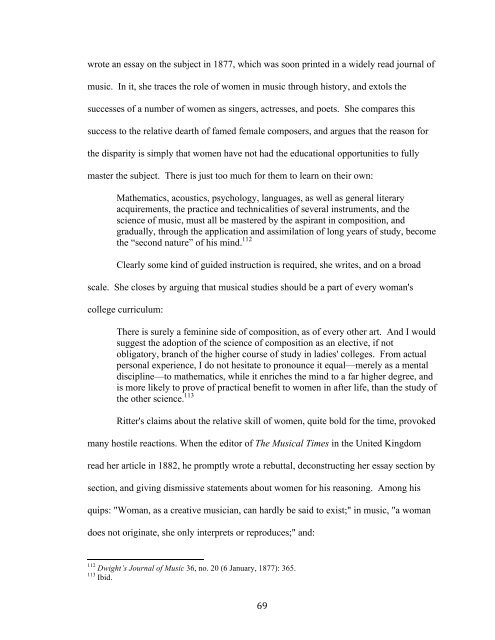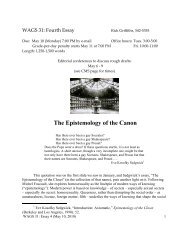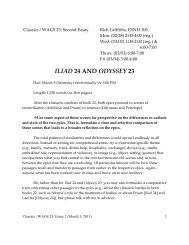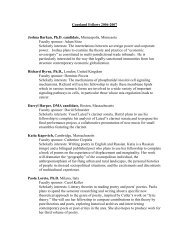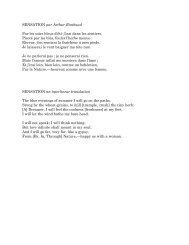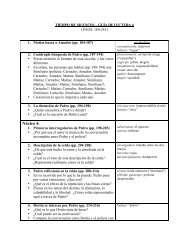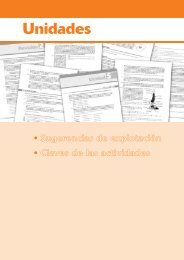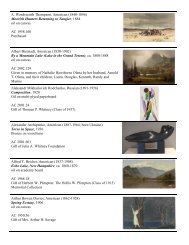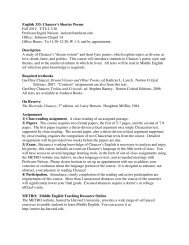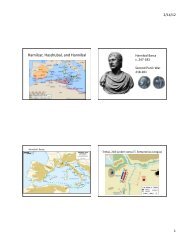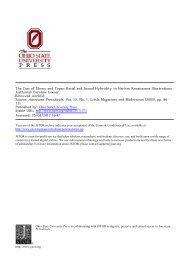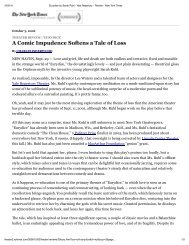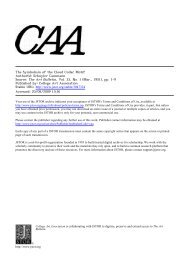Finding Their Voices - Amherst College
Finding Their Voices - Amherst College
Finding Their Voices - Amherst College
You also want an ePaper? Increase the reach of your titles
YUMPU automatically turns print PDFs into web optimized ePapers that Google loves.
wrote an essay on the subject in 1877, which was soon printed in a widely read journal of<br />
music. In it, she traces the role of women in music through history, and extols the<br />
successes of a number of women as singers, actresses, and poets. She compares this<br />
success to the relative dearth of famed female composers, and argues that the reason for<br />
the disparity is simply that women have not had the educational opportunities to fully<br />
master the subject. There is just too much for them to learn on their own:<br />
Mathematics, acoustics, psychology, languages, as well as general literary<br />
acquirements, the practice and technicalities of several instruments, and the<br />
science of music, must all be mastered by the aspirant in composition, and<br />
gradually, through the application and assimilation of long years of study, become<br />
the “second nature” of his mind. 112<br />
Clearly some kind of guided instruction is required, she writes, and on a broad<br />
scale. She closes by arguing that musical studies should be a part of every woman's<br />
college curriculum:<br />
There is surely a feminine side of composition, as of every other art. And I would<br />
suggest the adoption of the science of composition as an elective, if not<br />
obligatory, branch of the higher course of study in ladies' colleges. From actual<br />
personal experience, I do not hesitate to pronounce it equal—merely as a mental<br />
discipline—to mathematics, while it enriches the mind to a far higher degree, and<br />
is more likely to prove of practical benefit to women in after life, than the study of<br />
the other science. 113<br />
Ritter's claims about the relative skill of women, quite bold for the time, provoked<br />
many hostile reactions. When the editor of The Musical Times in the United Kingdom<br />
read her article in 1882, he promptly wrote a rebuttal, deconstructing her essay section by<br />
section, and giving dismissive statements about women for his reasoning. Among his<br />
quips: "Woman, as a creative musician, can hardly be said to exist;" in music, "a woman<br />
does not originate, she only interprets or reproduces;" and:<br />
!!!!!!!!!!!!!!!!!!!!!!!!!!!!!!!!!!!!!!!!!!!!!!!!!!!!!!!!<br />
112 Dwight’s Journal of Music 36, no. 20 (6 January, 1877): 365.<br />
113 Ibid.<br />
! 69!


